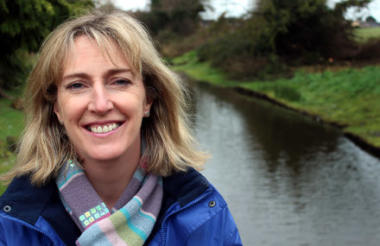Income at the National Trust has risen year-on-year, as the charity began to recover its membership numbers and saw a record fundraising year.
The charity's most recent set of accounts read that during the pandemic “many difficult decisions had to be taken and with regret cuts were made to both staff levels and activity”.
“Though challenging, these decisions have resulted in the Trust returning to a strong financial position,” the document adds.
Indeed, the accounts report a return to growth in the year to 28 February 2022, meaning the charity is “well placed to face the new challenges of higher inflation, the rising cost of living and wider economic performance”.
Visitors and membership increases
The National Trust reports that it received around 20m visitors to its pay-for entry properties, an increase of 7m visitors on last year, but down on previous years, “with people remaining cautious about sharing public spaces”.
Moreover, membership numbers rose to 5.7m after falling to 5.4m in the previous year – from a high point of 5.95m on 28 February 2021.
“We were delighted to welcome back members who paused their subscriptions during the pandemic, together with new members attracted by the opportunity to reconnect with nature and beauty on their doorstep during lockdown,” the charity report states.
Income and reserves growth
Total income was £651.5m, which included £107.2m in fundraising income and £280m in membership income.
This meant total income had grown by £65.3m on the prior year, though the accounts note that 2020-21 was “significantly negatively impacted by coronavirus restrictions and was consequently a much lower than normal trading year”, but last year’s income did include a £66m insurance settlement for its Clandon Park site.
“Excluding the year-on-year effect of the insurance settlement, income has grown by £131.3m,” the accounts read.
Reserves “grew modestly” to £413.7m, from £410.6m the year prior.
It continues: “Despite the pandemic, this was a record fundraising year. Conservation work continued thanks to generous support totalling £107.2m from individual donors, charitable trusts, grant funders and gifts in wills.”
Income from wills was £63.6m. Furthermore, online giving grew “significantly”, with donations reaching £2,163,150 compared with £865,000 in 2020-2021.
Staff and gender pay gap
The report notes: “Our gender pay gap report provides a snapshot as of 5 April 2021. The mean average gender pay gap at the Trust is 6.4% in favour of men, compared to a national average of 14.9%”.
This marks a 7.2% improvement on the previous year. The National Trust’s median average gender pay gap was 8.9%, “which is a slight worsening” of 1.0% year on year.
“Our gender pay gap is mainly caused by having a higher proportion of women working in our lower graded roles,” it states. Half of the charity’s senior leaders are women.
In 2021-22 the director-general, Hilary McGrady, was paid a salary of £199,614. Following the Hutton Report, each year the Trust monitors the ‘pay ratio’ “to ensure salaries remain fair and appropriate”.
Due to the impact of Covid-19, in 2020 the committee agreed to freeze all senior manager salaries. In October 2021, the committee agreed to award the senior management team a 2% pay increase from 1 October.
The monthly average number of regular employees, including part-time employees and employees on fixed-term contracts on a full time equivalent basis, but not including seasonal staff, was 6,651, compared to 7,578 the year prior.
McGrady: ‘We must provide value for money’
The charity’s director general, Hilary McGrady, said: “We’re hugely grateful to all our supporters, whether that is our loyal members, our generous funders, or our fantastic family of 44,000 volunteers, all of whom invaluably supported our recovery last year.
“As we enter a period of major pressure on people’s finances, we are very conscious we need to do everything possible to provide value for money and new opportunities for people to enjoy free-to-access places in our care.”
Related Articles












